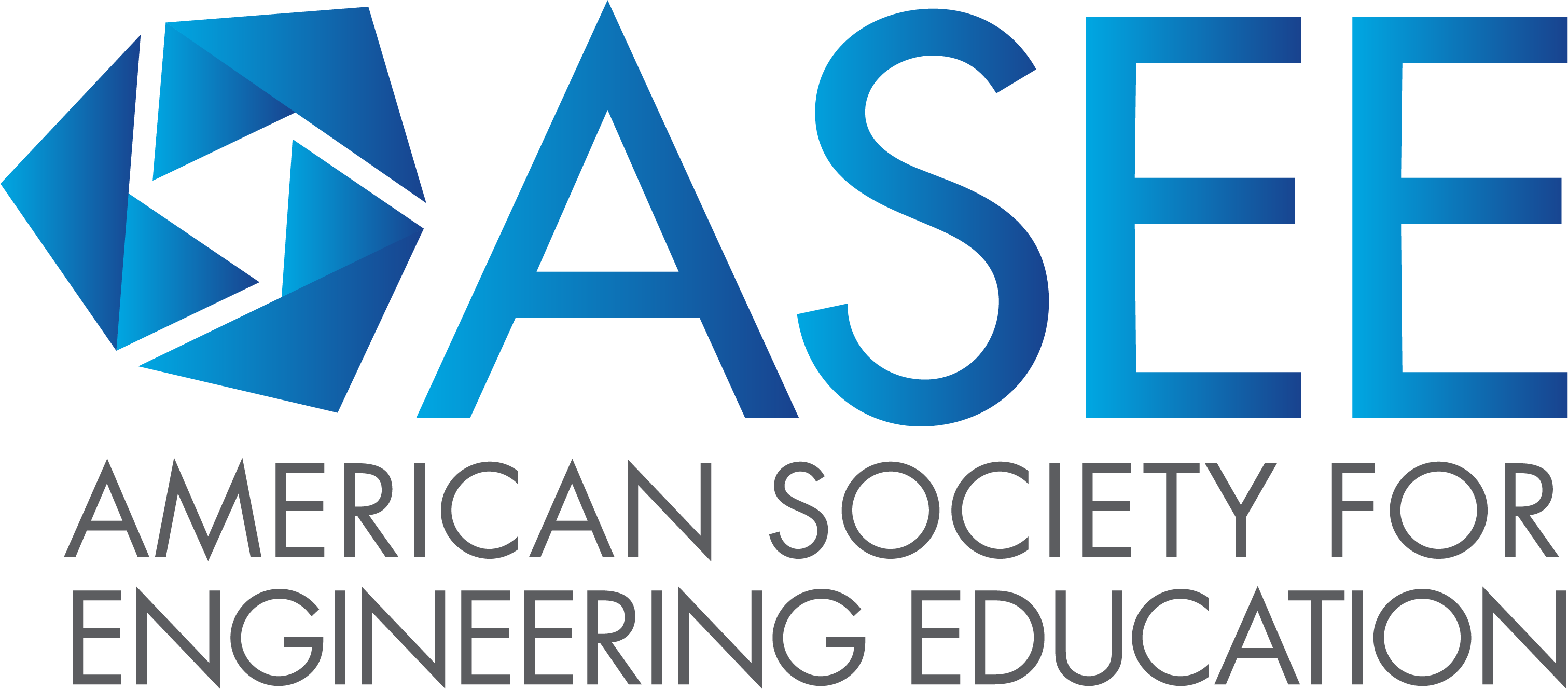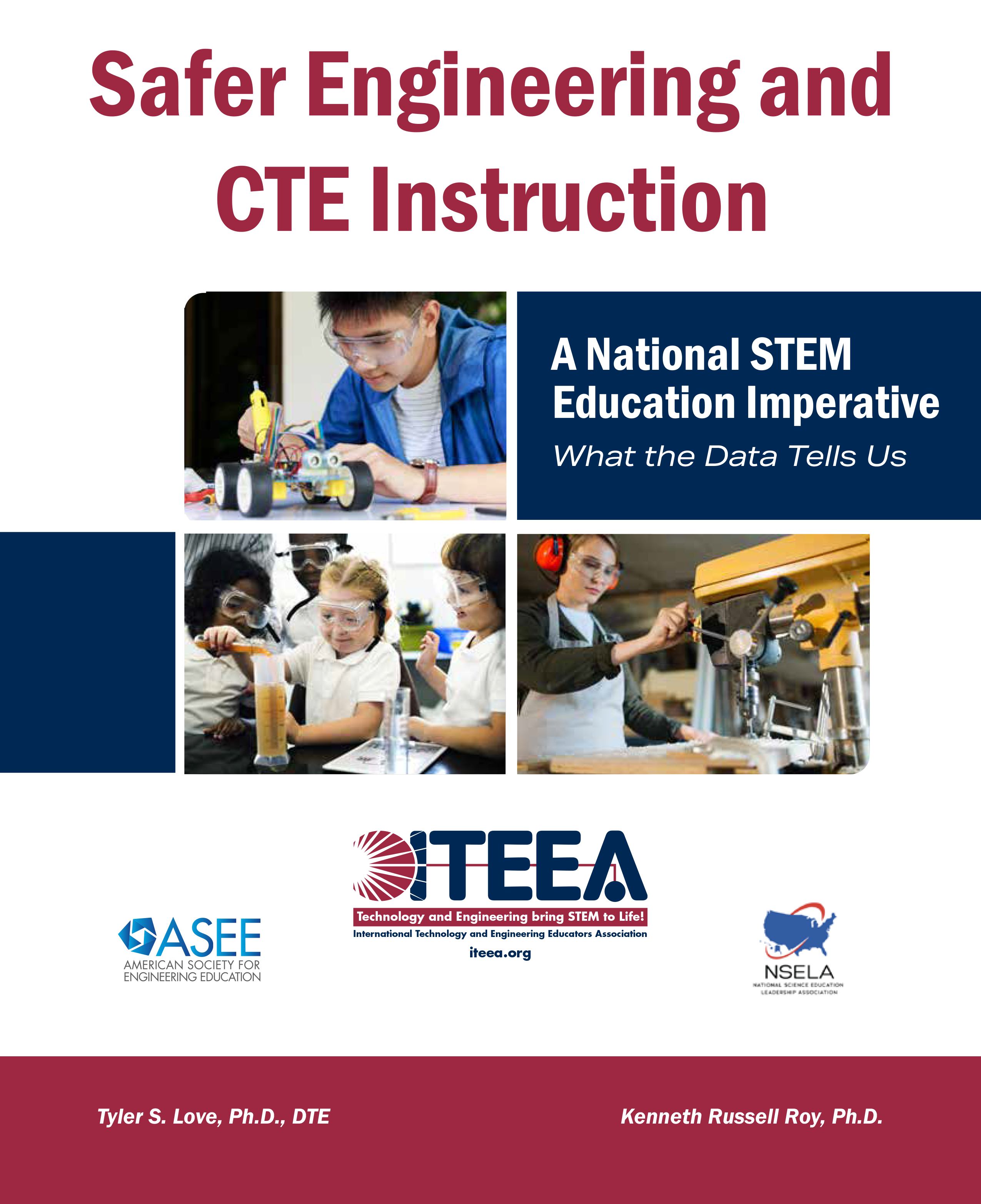Safety in Technology and Engineering Education
Safety for our students is a top priority, so ITEEA offers numerous free resources to aid you in creating and leading a safer classroom or lab.
While the hands-on, design-based learning nature of technology and engineering education is invaluable, the tools, equipment, materials, and chemicals students use in the classrooms can pose potential safety hazards and resulting risks.
ITEEA's wide range safety resources can help you answer the question “How can we provide engaging hands-on STEM learning experiences for all students in a safe setting?”

This Safety Resource site includes safety tests for educators and students' use, printable safety posters, PowerPoint presentations and videos that teachers can use to reinforce safer Integrative STEM Education lab practices.
Download Safer Engineering and CTE Instruction: A National STEM Education Imperative
Must be logged in to download eBook. Don't have an ITEEA account? Create a free one here!
This book utilizes findings from one of the most extensive national P-12 STEM and CTE safety research studies to date (718 teachers across 42 states) to provide practitioner friendly safety recommendations with suggested resources. The recommendations provide implications for state education departments, professional associations, school districts/boards of education, administrators, and teachers to make data informed decisions regarding safety policies and practices to enhance STEM and CTE instruction.
Thank you to our co-publishers:
 |
 |
Love, T. S., & Roy, K. R. (2022). Safer engineering and CTE instruction: A national STEM education imperative. What the data tells us. International Technology and Engineering Educators Association. https://www.iteea.org/safety
Note: The research presented in this publication was conducted in accordance with criteria approved by The Office for Research Protections at The Pennsylvania State University (Study ID: 00012283). ITEEA, the authors, and the reviewers do not assume liability for the accuracy of the information presented in this publication, and do not imply that methodologies outlined are the only applicable ones. Moreover, this book does not supersede legal safety standards.
State Reports from Safer Engineering and CTE Instruction (Click State to View Report)
*For additional data or data on states not listed above, please contact the authors
This open access research article from the International Journal of Technology and Design Education examines the association between course enrollment sizes and accident occurrences. It found that STEM courses with enrollments of 24 or fewer students were 87.5% less likely to have had an accident. Courses with enrollments surpassing 24 students were 8 times more likely to have an accident, and courses with more than 30 students were 21 times more likely to have had an accident occurrence over a five-year period.
This short, open access article is written for teachers, administrators/leaders, school counselors, and others involved with STEM and CTE courses. It summarizes a few of the most critical safety issues facing STEM and CTE programs today with research supported recommendations to address these issues.
This open access research article from the Journal of Technology Education analyzes the safety of STEM courses that taught engineering design-based lessons. It found that teachers who completed undergraduate coursework covering safety topics were 83% less likely to have had an accident in the STEM courses they taught.
This paper presents safety findings from a study involving 718 educators from 42 states who taught lab based CTE or STEM courses and provides practical implications for state departments and school districts to improve the safety practices, protocols, and policies within CTE and STEM education labs.
This article presents data supported recommendations which school districts would benefit from following because this document could be admissible in future accident cases to help establish a new precedent for safer T&E instruction.
This article examines the responses from Wisconsin educators to the 2020 National T&E Education Safety Survey and discusses how Wisconsin educators compare to the rest of respondents on a number of safety issues, some of which were positive and others concerning.
This hour-long session summarizes the key findings form the Safety Engineering and CTE Instruction and discusses some of the most important implications.
This short practitioner focused article from the Association for Career and Technical Education (ACTE) summarizes the key CTE safety findings from Safer Engineering and CTE Instruction: A National STEM Education Imperative. This is an excellent resource to share with teachers, administrators, and other educators seeking to improve safety.
Join Mark Harrell and Tyler Love for an essential session on safety training tailored for educators transitioning to Technology & Engineering (T&E) education. This session will cover critical safety protocols, legal responsibilities, and best practices for maintaining a safe learning environment in makerspaces and STEM labs. Participants will gain insights from recent safety surveys and learn how to implement effective safety programs in their schools. The session will also include practical activities, such as hazard analysis and lab walkthroughs, to enhance safety self-efficacy and expected outcomes. Don’t miss this opportunity to ensure your classroom meets all safety standards and provides a secure environment for both teachers and students.
This article from edCircuit takes a closer look at some of the key findings from Safer Engineering and CTE Instruction: A National STEM Education Imperative. It also provides the option to listen to the article.
This article provides statistical analyses of the national data set from Safer Engineering and CTE Instruction: A National STEM Education Imperative. It is a subscription article from Safety Science.









